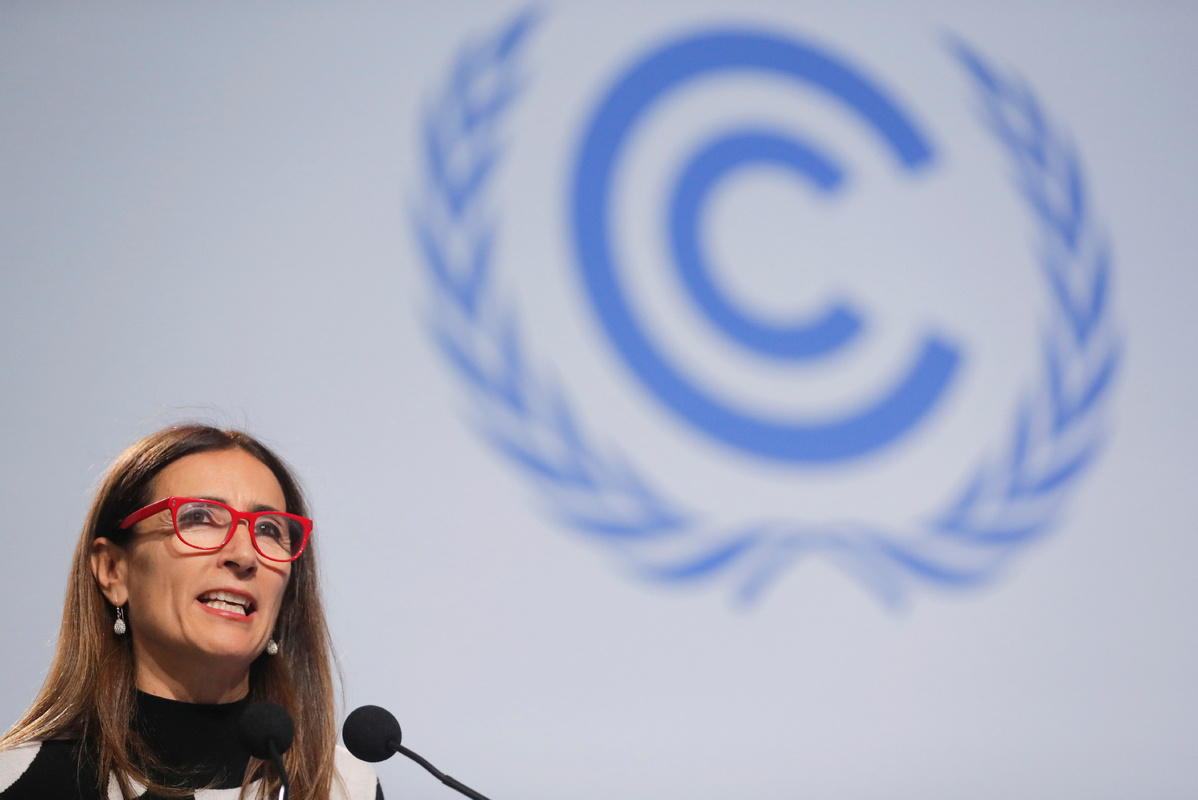UN meeting calls for more climate effort
By HOU LIQIANG | China Daily | Updated: 2019-12-03 04:54

Participants in this year's United Nations climate change conference called for more ambitious pledges in reducing greenhouse gas emissions as the conference started on Monday in Madrid, Spain.
Carolina Schmidt, Chile's environment minister, said the conference needs to lay the groundwork for moving toward carbon neutral economies while being sensitive to the poorest and those most vulnerable to rising temperatures.
"Those who don't want to see it will be on the wrong side of history," said Schmidt, also chairwoman of the climate conference.
Schmidt called on governments to make more ambitious promises to reduce carbon emissions ahead of next year's UN deadline.
The summit was moved to Spain after Chile had to cancel amid anti-government protests, but it is still being held under Chile's presidency. Almost 200 countries will try to reach consensus on how to establish an international carbon trading market and compensate poor countries for losses from climate change. The conference will continue through Dec 13.
"We have a common challenge but with differentiated needs and urgencies, which we can only overcome if we work together," Schmidt said.
Addressing the opening ceremony, UN Secretary-General Antonio Guterres stressed that the world is at a critical juncture in collective efforts to limit dangerous global warming.
"By the end of the coming decade, we will be on one of two paths. One is the path of surrender, where we have sleepwalked past the point of no return, jeopardizing the health and safety of everyone on this planet. … The other option is the path of hope. A path of resolve, of sustainable solutions."
As outlined by the UN's Intergovernmental Panel on Climate Change, the world would need to limit the average global temperature rise to 1.5 C, reach carbon neutrality by 2050 and reduce greenhouse gas emissions by 45 percent from 2010 levels by 2030 to keep climate change within manageable limits. Guterres warned, however, that up to now, the efforts of the international community to reach these targets have been "utterly inadequate".
"What is still lacking is political will. Political will to put a price on carbon. Political will to stop subsidies on fossil fuels. Political will to stop building coal power plants from 2020 onward. Political will to shift taxation from income to carbon — taxing pollution instead of people," he said.
























